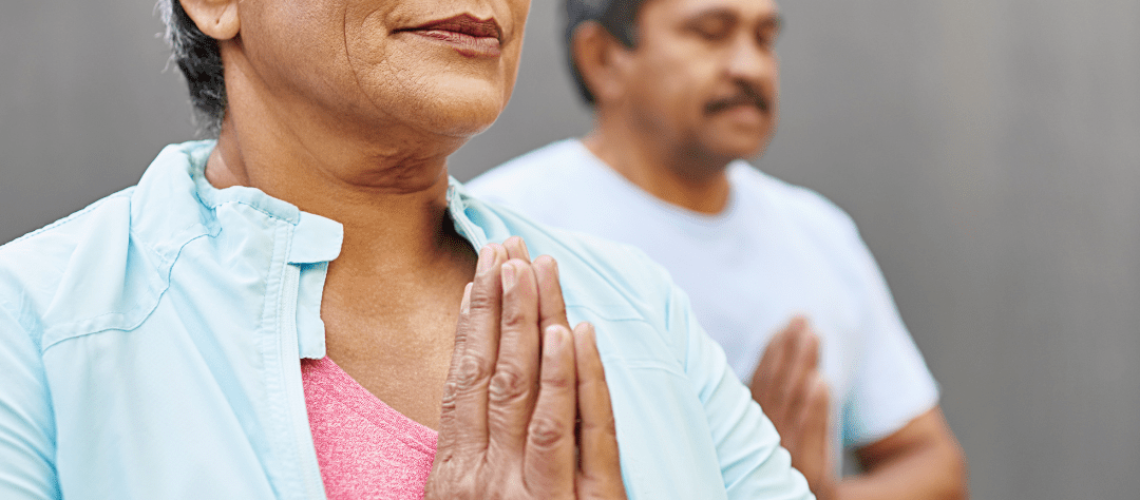May is Meditation Month, a time to renew our commitment to personal well-being through meditation. Meditation can be especially beneficial for the elderly, offering a pathway to enhanced mental clarity and a calmer, more peaceful state of mind. At Shepherd’s Staff In-home Care, we believe in supporting every aspect of our client’s well-being, and this month, we’re excited to share how incorporating meditation can significantly improve the quality of life for our elderly loved ones.
The Benefits of Meditation for Seniors
Meditation offers numerous health benefits that are particularly advantageous as we age:
- Improves cognitive function: Regular meditation can help maintain and even improve cognitive functions, potentially slowing the progression of age-related memory issues.
- Reduces stress and anxiety: It’s common for seniors to experience increased anxiety and stress; meditation provides a tool to manage these feelings and promote relaxation.
- Enhances sleep quality: Many seniors struggle with sleep issues; meditation helps establish a peaceful bedtime routine that can lead to deeper and more restful sleep.
- Pain management: For those dealing with chronic pain, meditation can be a useful complement to medical treatment, helping to decrease the perception of pain.
Adapting Meditation Practices for the Elderly
To make meditation accessible and enjoyable for seniors, consider these adaptations:
- Seated meditation: Seated, or even lying down, meditation can be perfect for those with limited mobility. Focus on gentle breaths and mindfulness to achieve calm.
- Guided meditation: Utilize apps or online resources that offer guided sessions specifically designed for seniors, making the practice easier to follow.
- Breathing exercises: Simple breathing techniques can be powerful tools to reduce anxiety and are easy to perform at any time of the day.
Setting Up a Meditation Space
Creating a conducive environment is crucial for meditation. Here’s how to set up an ideal meditation space at home:
- Comfort first. Use supportive cushions or chairs to ensure comfort throughout the session, which is especially important for those with physical limitations.
- Quiet and calm. Choose a part of the home that is typically quiet and has minimal distractions. This could be a corner of a bedroom or a dedicated room.
- Accessibility. Make sure the space is easily accessible, including making room for mobility aids if needed.
Involving Caregivers
Incorporating caregivers in the meditation process can enhance the experience:
- Caregivers can join the meditation sessions, fostering a shared experience and deeper connection.
- Help seniors incorporate meditation into their daily routine, perhaps starting with a few minutes each day and gradually increasing.
- Continuous encouragement from caregivers can help seniors maintain motivation and reap the full benefits of their meditation practice.
Meditation offers a host of benefits that can significantly enhance the mental and physical well-being of our elderly loved ones. As we observe Meditation Month, let’s take this opportunity to introduce the peaceful practice of meditation into their daily routines, helping them to lead more serene and comfortable lives. For those looking for guidance on getting started, check out this list of recommended meditation apps. Let’s use this Meditation Month to make a positive change in the lives of our elderly family members and clients, helping them find tranquility and health through meditation.


